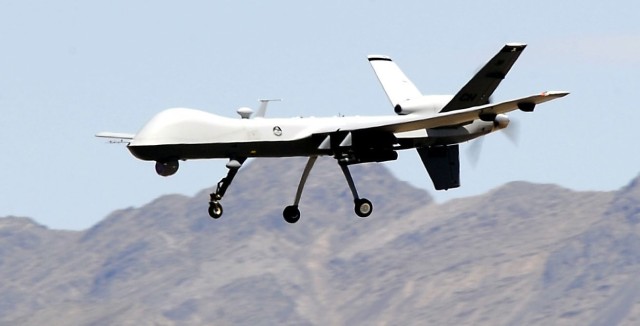 Just days after the U.S. government said it would allow the sale of its drones to military allies, Australia’s conservative government on Monday said the country’s air force had already commenced training aircrew and support staff in the U.S. on the MQ-9 ’Reaper’.
Just days after the U.S. government said it would allow the sale of its drones to military allies, Australia’s conservative government on Monday said the country’s air force had already commenced training aircrew and support staff in the U.S. on the MQ-9 ’Reaper’.
“It would be remiss of Australia not to continue to develop our knowledge of this technology to ensure we are able to gain the greatest benefit from unmanned aerial systems and the best protection for our troops on future operations,” said Darren Chester, a junior minister to Australia’s Defense Minister Kevin Andrews.
U.S. officials last week said the new policy was designed to give America greater control over where and how armed drones are used. The policy would require countries looking to buy armed drones to assure the U.S. that they wouldn’t use them to carry out illegal surveillance, that they would abide by international humanitarian laws and that they use them for legal purposes.
Applicants would be approved on a case-by-case basis. The U.S. has sold armed drones to the U.K., and Italy has long sought permission to use the same weapons.
Air Marshal Geoff Brown, the head of Australia’s small but technologically-advanced Air Force—which already plans to re-equip with 58 F-35 stealth fighters costing more than 12 billion Australian dollars (US$9.41 billion)—said last year that he would like to acquire Reapers, manufactured by General Atomics.
Mr. Chester didn’t say whether the government would buy Reapers or how Australia would like to use them, but has previously stressed maritime security and antipiracy operations. Operating from Australian territories in the Indian Ocean, Reapers would have theoretical range across Indonesia and strategic trade routes around the Malacca Strait.
Australia, a close U.S. military and political ally, last year said it was buying seven Northrop Grumman-manufactured MQ-4C Triton unarmed surveillance drones for its navy to work alongside a new fleet of eight P-8A Poseidon maritime patrol aircraft, built by Boeing. The country has also sent warplanes to join the U.S. led coalition targeting Islamic State insurgents in Iraq, and was an original member of Western coalitions in both Iraq and Afghanistan, where Australian troops joined U.S. and British counterparts.
Source: Wall Street Journal
